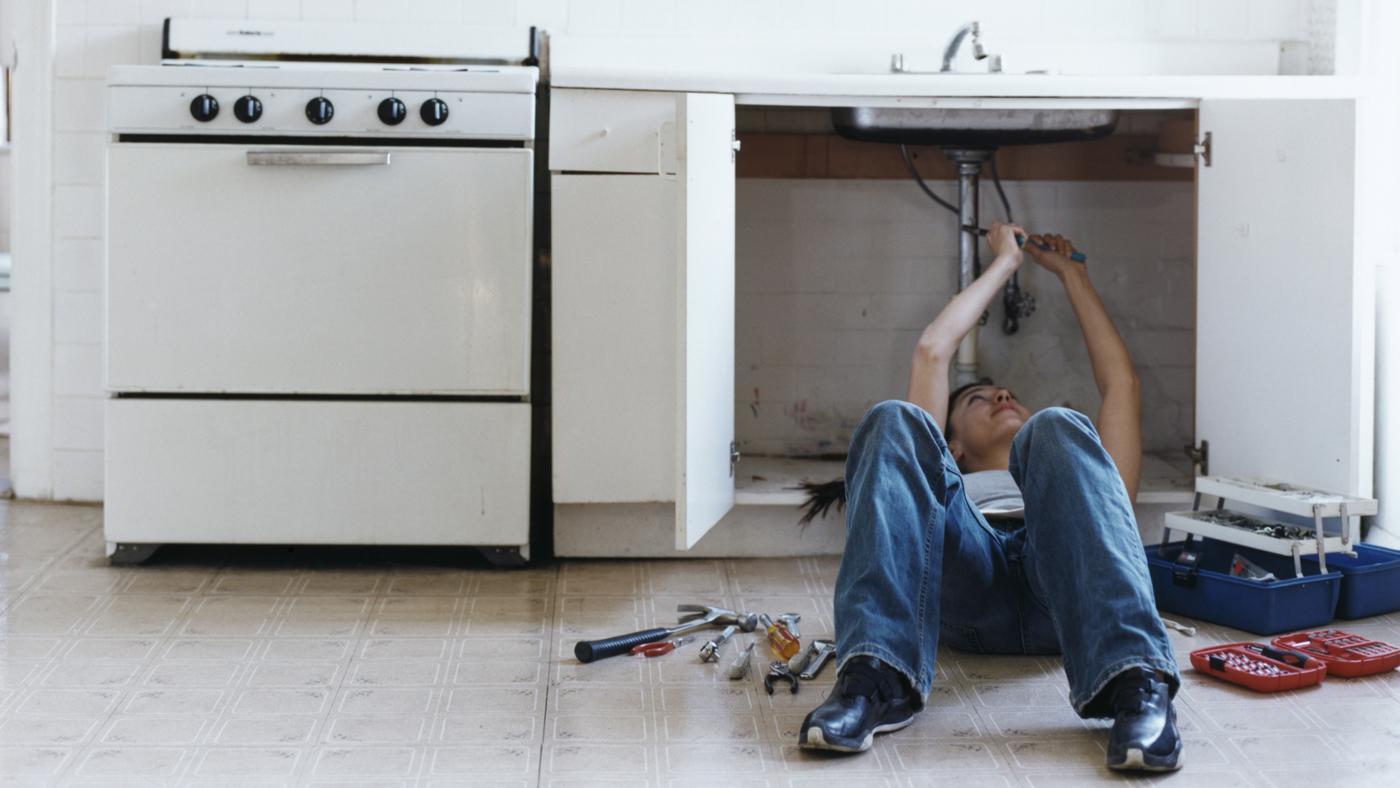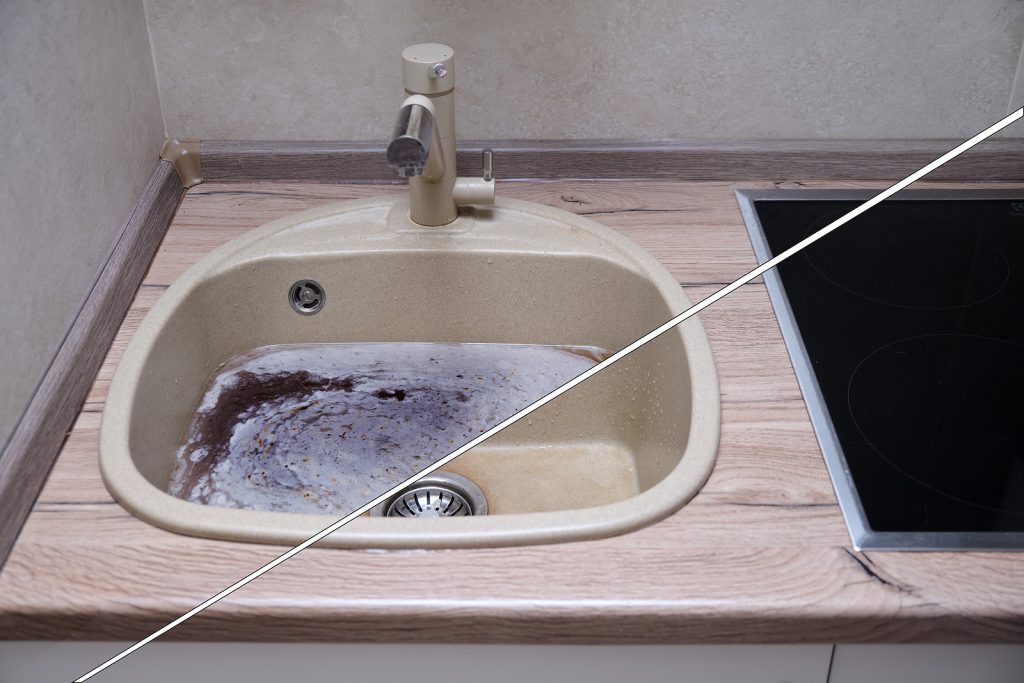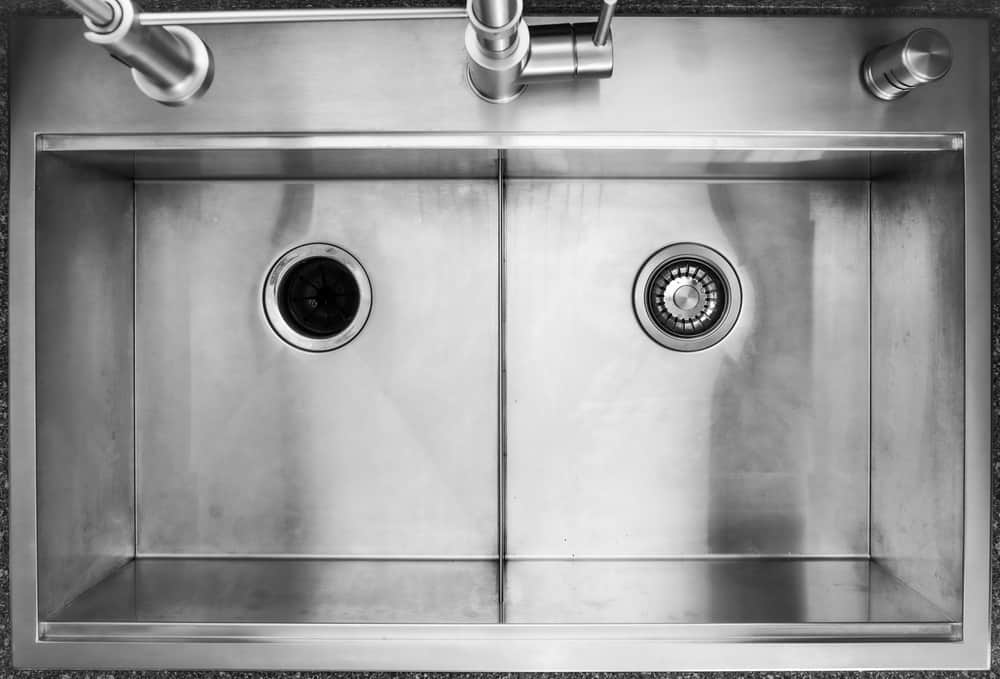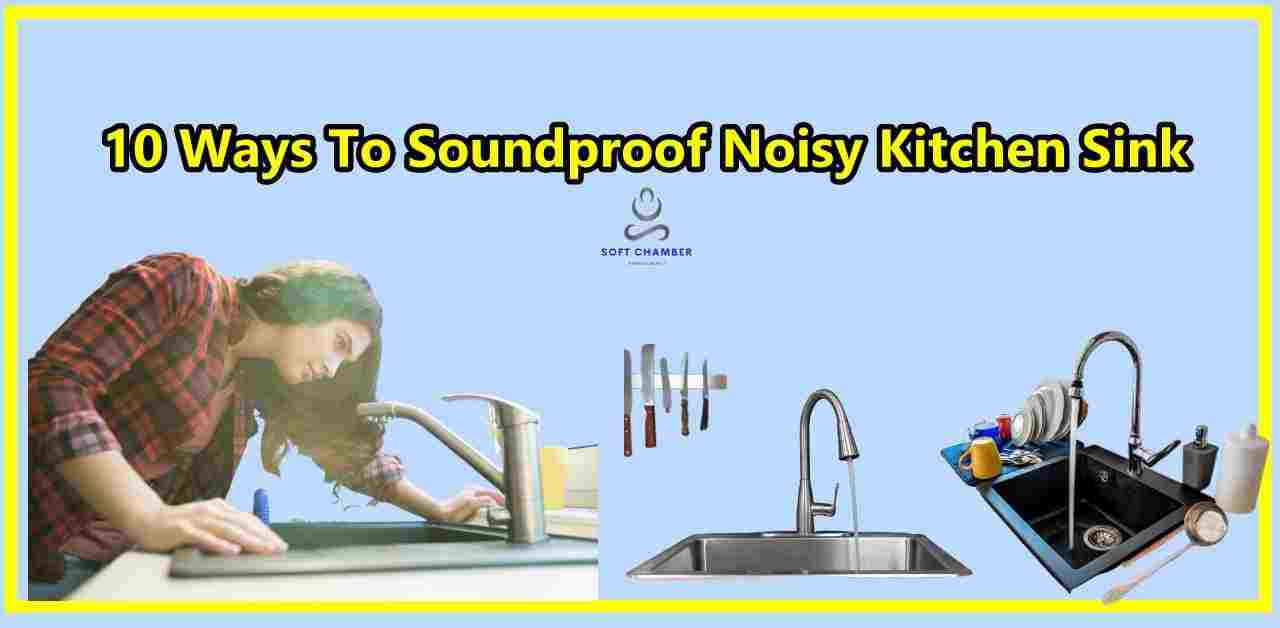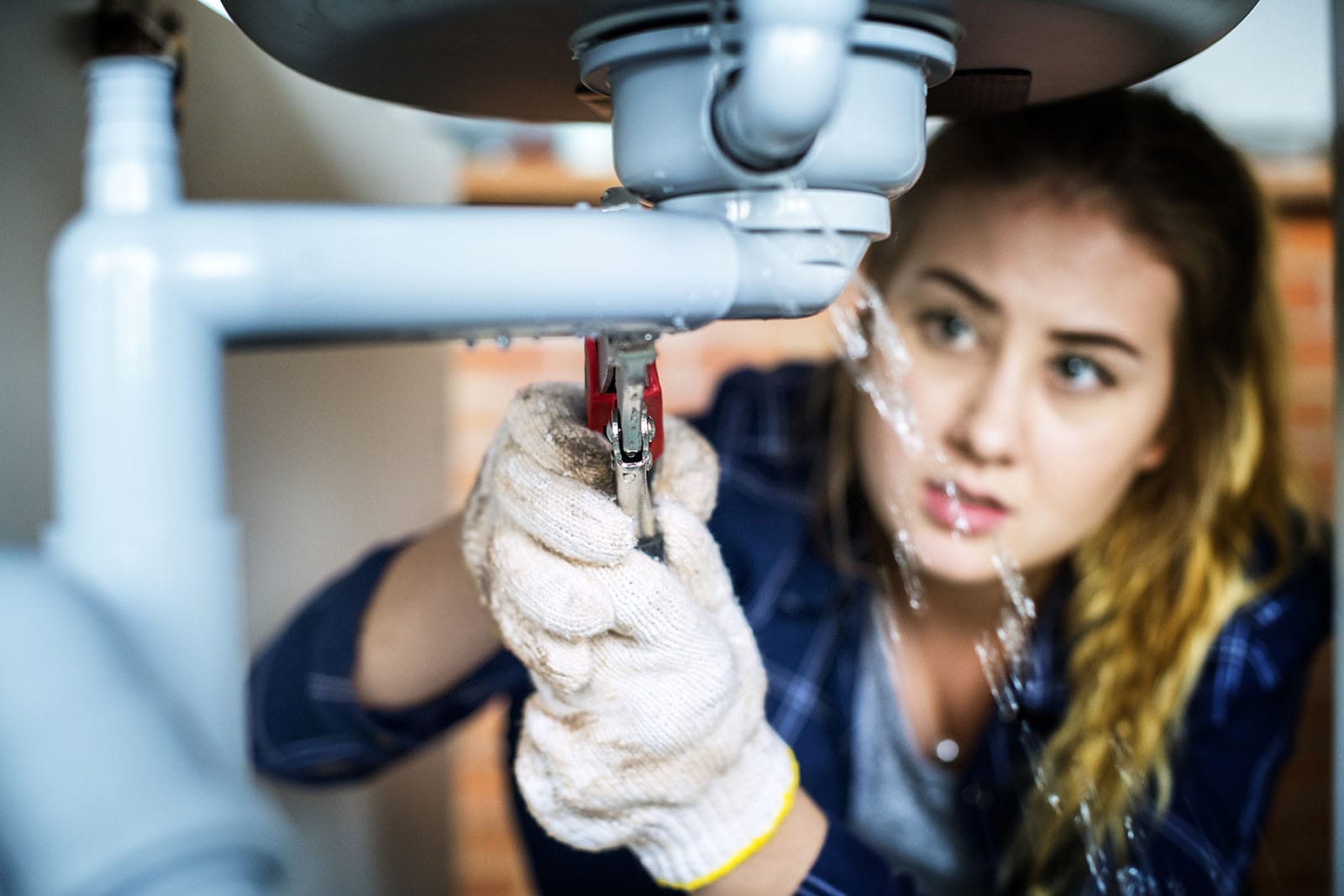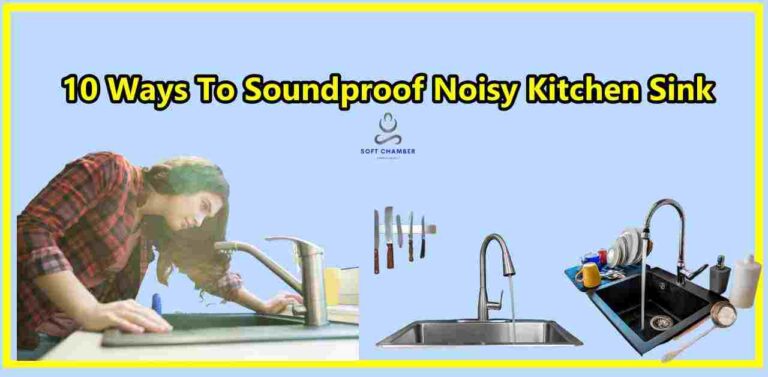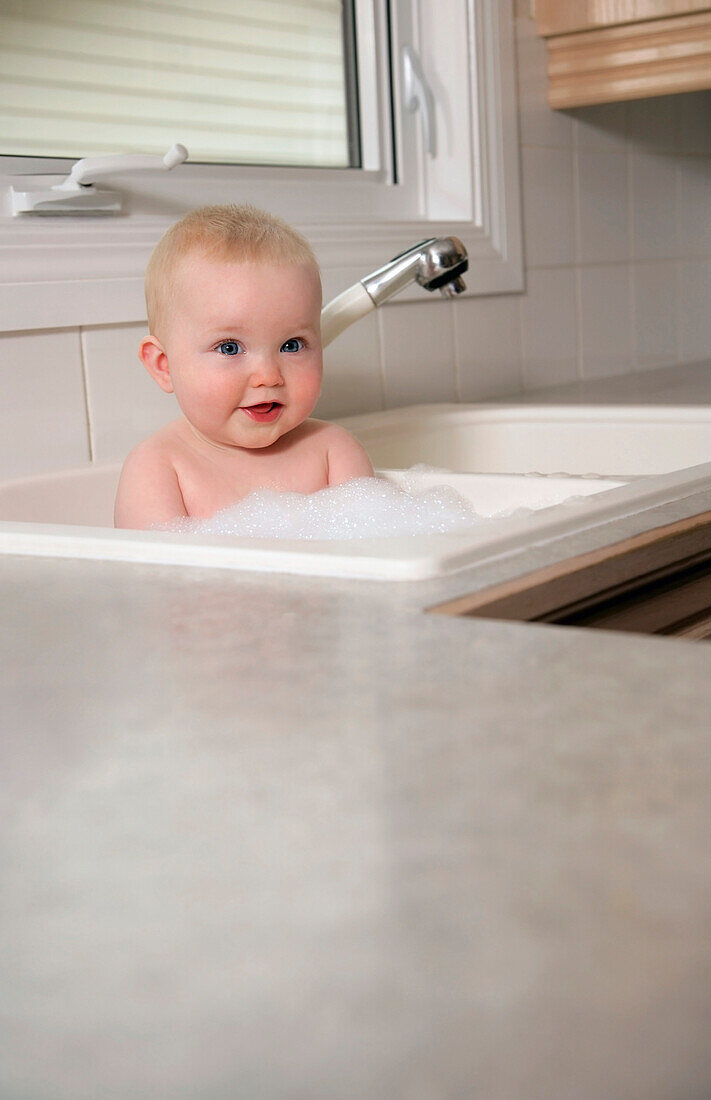If you're hearing a strange noise coming from under your kitchen sink, it's not a ghost trying to communicate with you. It's most likely a problem with your running water. Luckily, fixing a noisy kitchen sink is a task that even a novice DIYer can handle. In this article, we'll go over the top 10 ways to address and fix a loud running water noise under your kitchen sink.How to Fix a Noisy Kitchen Sink
One of the most common reasons for a noisy kitchen sink is high water pressure. This can cause your pipes to vibrate and make loud noises. To fix this, you can install a pressure-reducing valve or adjust the water pressure regulator on your main water supply line.1. Check the Water Pressure
If your pipes are not secured properly, they may rattle and create a loud noise when water is running. Inspect your pipes and tighten any loose connections with a pipe wrench. You can also use pipe straps or clips to secure the pipes to the wall or cabinet.2. Tighten Loose Pipes
If your pipes are exposed, they may be causing a loud noise due to the temperature changes of the water running through them. To reduce this noise, you can add insulation around the pipes. This can be done with foam pipe sleeves or by wrapping the pipes with towels or blankets.3. Add Insulation
If your pipes are old and rusty, they may be the cause of the noise. In this case, it's best to replace them with new pipes. This will not only eliminate the noise but also prevent any potential leaks or water damage in the future.4. Replace Old Pipes
If you hear a loud bang or thumping noise when you turn off your kitchen sink, it's likely due to water hammer. This occurs when the water flow is abruptly stopped, causing a shockwave in the pipes. Installing water hammer arrestors can help absorb this shock and reduce the noise.5. Install Water Hammer Arrestors
If your pipes are making a gurgling or bubbling noise, it could be due to air trapped in the pipes. This can happen when the water supply is turned off and then back on. To fix this, turn off the water supply and open all the faucets in your home to release the air. Then, turn the water supply back on and the noise should stop.6. Check for Air in the Pipes
If your pipes are making a squeaking or rubbing noise, it may be due to friction between the pipes and the surrounding materials. To reduce this noise, you can use a pipe lubricant specifically designed for plumbing pipes.7. Use Pipe Lubricant
If the noise is only coming from a specific faucet, it may be due to a worn-out washer or valve. You can try adjusting the faucet by tightening or replacing the washer. If that doesn't work, you may need to replace the entire faucet.8. Adjust the Faucet
If you have a dishwasher connected to your kitchen sink, it may be the source of the noise. Make sure the dishwasher is properly secured and not vibrating against the cabinet or wall. You can also try running the dishwasher on a different cycle to see if that reduces the noise.9. Check the Dishwasher
How to Solve the Issue of Running Water Noise Under Your Kitchen Sink

The Importance of a Quiet Kitchen
/close-up-of-overflowing-bathroom-sink-90201417-579787783df78ceb865822d8.jpg) As homeowners, we want our houses to be a peaceful and quiet sanctuary, especially when it comes to our kitchens. After all, the kitchen is often considered the heart of the home, where we spend a significant amount of time cooking, eating, and entertaining. However, if you've been experiencing the annoying sound of running water coming from under your kitchen sink, it can definitely disrupt the tranquility of your space. Not only is it a nuisance, but it can also indicate a potential plumbing issue that needs to be addressed. In this article, we will discuss the possible causes of running water noise under your kitchen sink and how to fix it.
As homeowners, we want our houses to be a peaceful and quiet sanctuary, especially when it comes to our kitchens. After all, the kitchen is often considered the heart of the home, where we spend a significant amount of time cooking, eating, and entertaining. However, if you've been experiencing the annoying sound of running water coming from under your kitchen sink, it can definitely disrupt the tranquility of your space. Not only is it a nuisance, but it can also indicate a potential plumbing issue that needs to be addressed. In this article, we will discuss the possible causes of running water noise under your kitchen sink and how to fix it.
The Common Causes of Running Water Noise
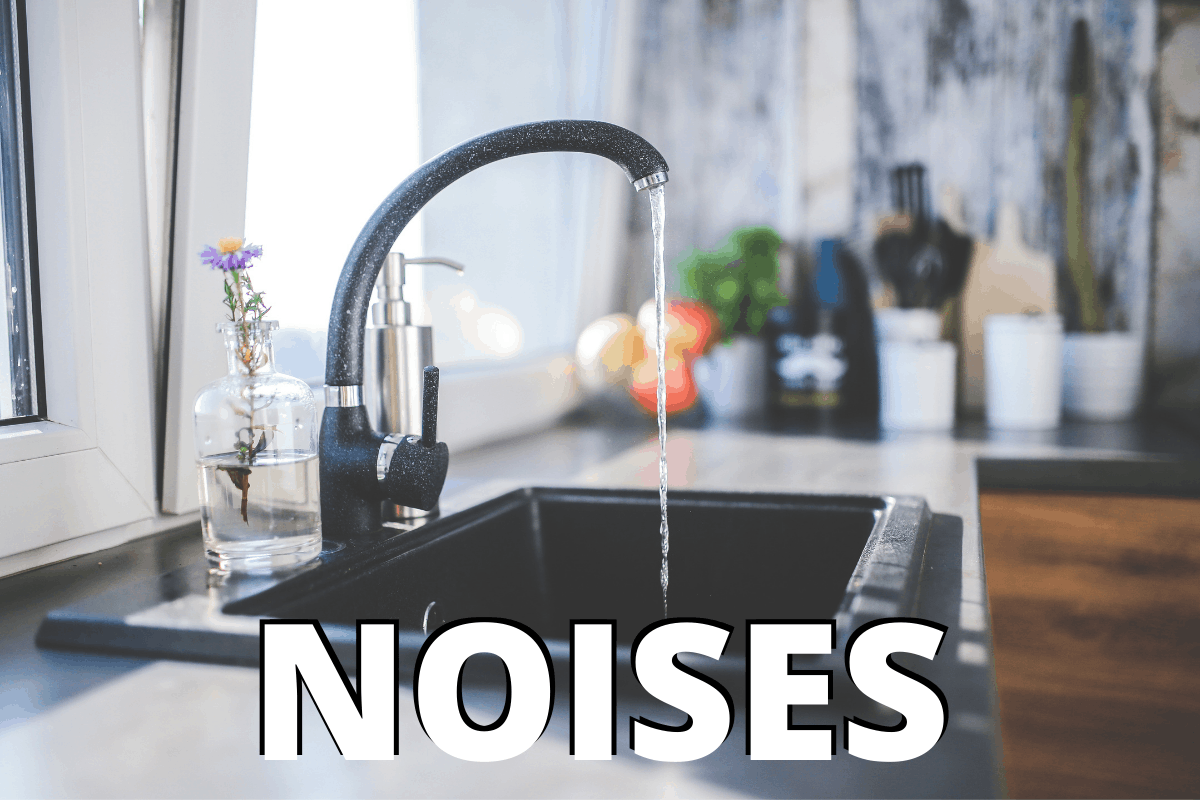 There are a few reasons why you may be hearing running water noise under your kitchen sink. One of the most common causes is a faulty faucet or shut-off valve. If the faucet or valve is not completely turned off, it can cause a continuous flow of water, resulting in that annoying sound. Another potential cause could be loose or damaged pipes. Over time, the pipes under your sink can become loose due to wear and tear, causing them to vibrate with the water flow and creating a noisy disturbance. In some cases, the noise could also be caused by a clogged drain, which can create a gurgling sound as the water tries to pass through.
There are a few reasons why you may be hearing running water noise under your kitchen sink. One of the most common causes is a faulty faucet or shut-off valve. If the faucet or valve is not completely turned off, it can cause a continuous flow of water, resulting in that annoying sound. Another potential cause could be loose or damaged pipes. Over time, the pipes under your sink can become loose due to wear and tear, causing them to vibrate with the water flow and creating a noisy disturbance. In some cases, the noise could also be caused by a clogged drain, which can create a gurgling sound as the water tries to pass through.
How to Fix the Issue
/water-overflowing-in-kitchen-sink-200553937-001-5797e6335f9b58461f5a6736.jpg) The first step in solving the problem of running water noise under your kitchen sink is to identify the source. Start by checking all the faucets and valves, making sure they are completely turned off. If the noise persists, it's time to take a closer look at the pipes. You can try tightening any loose connections or replacing any damaged pipes. If the problem still persists, it may be a good idea to call a professional plumber to inspect and fix the issue. In the case of a clogged drain, you can try using a plunger or a drain cleaner to clear the blockage.
Remember
, it's essential to address this issue promptly as it can lead to bigger plumbing problems down the line. Not only that, but the constant noise can also be a significant inconvenience for you and your family. By identifying and fixing the cause of the running water noise, you can ensure a peaceful and quiet kitchen once again.
The first step in solving the problem of running water noise under your kitchen sink is to identify the source. Start by checking all the faucets and valves, making sure they are completely turned off. If the noise persists, it's time to take a closer look at the pipes. You can try tightening any loose connections or replacing any damaged pipes. If the problem still persists, it may be a good idea to call a professional plumber to inspect and fix the issue. In the case of a clogged drain, you can try using a plunger or a drain cleaner to clear the blockage.
Remember
, it's essential to address this issue promptly as it can lead to bigger plumbing problems down the line. Not only that, but the constant noise can also be a significant inconvenience for you and your family. By identifying and fixing the cause of the running water noise, you can ensure a peaceful and quiet kitchen once again.
In Conclusion
 Hearing running water noise under your kitchen sink can be frustrating, but it's not an unsolvable issue. By understanding the common causes and taking the necessary steps to fix them, you can eliminate the noise and restore peace and quiet in your kitchen. However, if the problem persists even after your attempts to fix it, don't hesitate to seek professional help. A quiet and functional kitchen is essential for a happy home, and it's worth the effort to ensure it stays that way.
Hearing running water noise under your kitchen sink can be frustrating, but it's not an unsolvable issue. By understanding the common causes and taking the necessary steps to fix them, you can eliminate the noise and restore peace and quiet in your kitchen. However, if the problem persists even after your attempts to fix it, don't hesitate to seek professional help. A quiet and functional kitchen is essential for a happy home, and it's worth the effort to ensure it stays that way.




